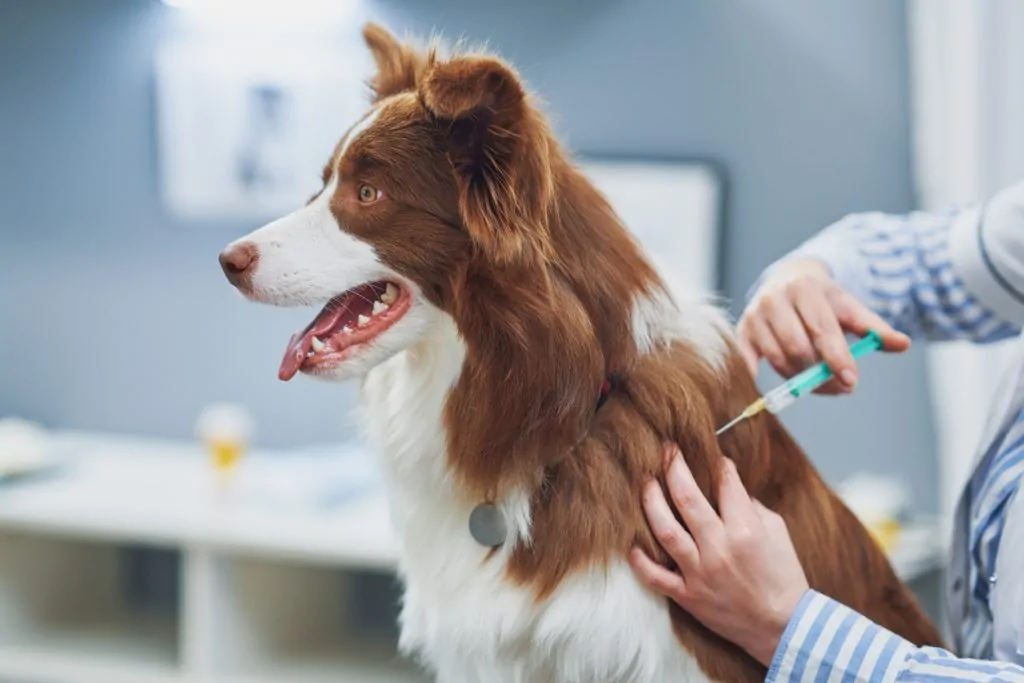Vaccines help keep your dog healthy by protecting them from potentially deadly diseases. Having your dog vaccinated also helps protect other dogs and even humans in some cases.
This doesn’t mean that every vaccine is right for every dog on an annual basis. Here is a look at which vaccines are available for your dog and when they might need them.

| Vaccine Type | Frequency |
| Rabies (Required, see your state website for specific laws) | Every 1 to 3 years after the initial vaccine |
| DHPP (vaccines for distemper, adenovirus, parainfluenza, and parvovirus) | Every 1 to 2 years |
| Bordetella (Kennel Cough) | Every 6 months to 1 year |
| Influenza, Coronavirus, Leptospirosis, Lyme disease | As needed based on lifestyle and location |
Depending on the type of vaccine your vet uses and the state laws where you live, your dog will need a rabies shot every one to three years. Additionally, they will need their DHPP every one to two years as well.
If you board your dog anywhere, have them groomed, or for any other reason have them around other dogs outside your household, you should have them vaccinated for Bordetella every six months to a year.
Rabies vaccines are required by law in all but two states. Ohio mandates rabies vaccines by county so they are still required, just not by state law. Hawaii has irradicated rabies from their islands. They require long quarantine periods before bringing pets into the state. If you are not a resident of Hawaii, it is likely that a rabies vaccine is required for your dog where you live.
DHPP is not legally required, but it is required for taking your dog into almost any public space that welcomes dogs. Most animal hospitals, kennels, and groomers also require a Bordetella vaccine.
Vaccines for diseases like Influenza, Coronavirus, Leptospirosis, and Lyme disease are not required but may be needed under certain circumstances. For example, Lyme disease is only prevalent in certain regions making the vaccine very important to some but not others.
There is no upper age limit on vaccinating dogs. Vaccines help protect dogs from harmful diseases and are needed throughout their lives. There is no evidence that vaccines are particularly risky or in any way decrease in benefit to senior dogs.
Your senior dog should be vaccinated on the same adult dog schedule they have been on unless otherwise directed by your local veterinarian.
You will need to keep your dog’s vaccines up to date from puppyhood throughout adulthood. Talk to your veterinarian about your dog and the lifestyle that your household leads. They will help you decide which vaccines are right for your dog. They will also help you decide how often your dog should receive vaccines.
If you have any questions or concerns about having your dog vaccinated ask your local veterinarian. They will help you chart the right path for your pet’s optimal health.
Phone: (855) 461-8259
Email: [email protected]